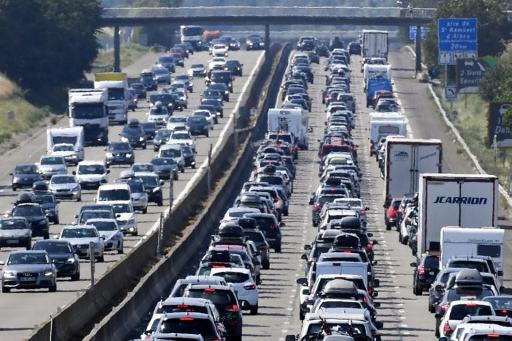The maximum speed limit on a majority of the Brussels ring road is set to be reduced to 100 km/h from 1 September, mobility authorities said.
The reduction from the current 120 km/h limit will be implemented by Flanders and Brussels and is a key part of the former's climate action plan, Flemish Mobility Minister Lydia Peeters said Thursday.
Related News
- Speed limit on Brussels Ring Road to be reduced by 20 km/h in 2020
- Speed limit on Brussels ring road slashed to 100 km/h as part of Flemish climate strategy
- Belgians far from keen on limiting speed to improve air quality
Peeters' counterpart in Brussels, Mobility Minister Elke Van den Brandt, said that the speed limit reduction will also apply to the roughly 5 km of the ring managed by Brussels.
While the move means that a majority of the motorway's 75 km will be affected by the change, the news could also bring a new type of headache for motorists, as it remains unclear whether Walloon authorities will also apply the changes on the 18 km under their control.
Last year, as Flanders unveiled plans for the speed reduction, Wallonia's road safety minister, Valerie de Bue, said she had doubts about the "pertinence" of reducing the speed limit on the Walloon part of the road and advocated for "dynamic speed management."
A spokesperson for de Bue did not immediately reply to a request for comment.
According to Peeters, cutting back the speed limit, will boost Flanders' capacity to meet their climate commitments.
"Reducing the speed to 100 km/h on the Brussels Ring will have a positive impact on CO2 emissions as well as on local air quality," Peeters said.
Unveiled last year, Flanders' was fiercely criticised by climate action groups who accused the Dutch-speaking region of scaling back their emission reduction goals and hurting Belgium's chances of reducing emissions nationwide.
While some studies have shown that reducing drivers' speeds on motorways could cut carbon emissions by up to 30%, the measure has gathered little support among residents, as other studies show that the effective benefits depend on a range of factors.
In a 2019 study, the EU's environment agency (EEA) said that motorist's driving patterns, type of vehicle and the frequency and severity of traffic jams played a major role in the effective reduction of overall carbon emissions.
Gabriela Galindo
The Brussels Times

